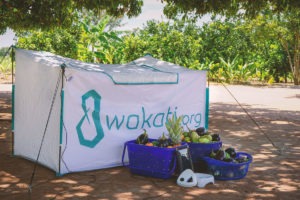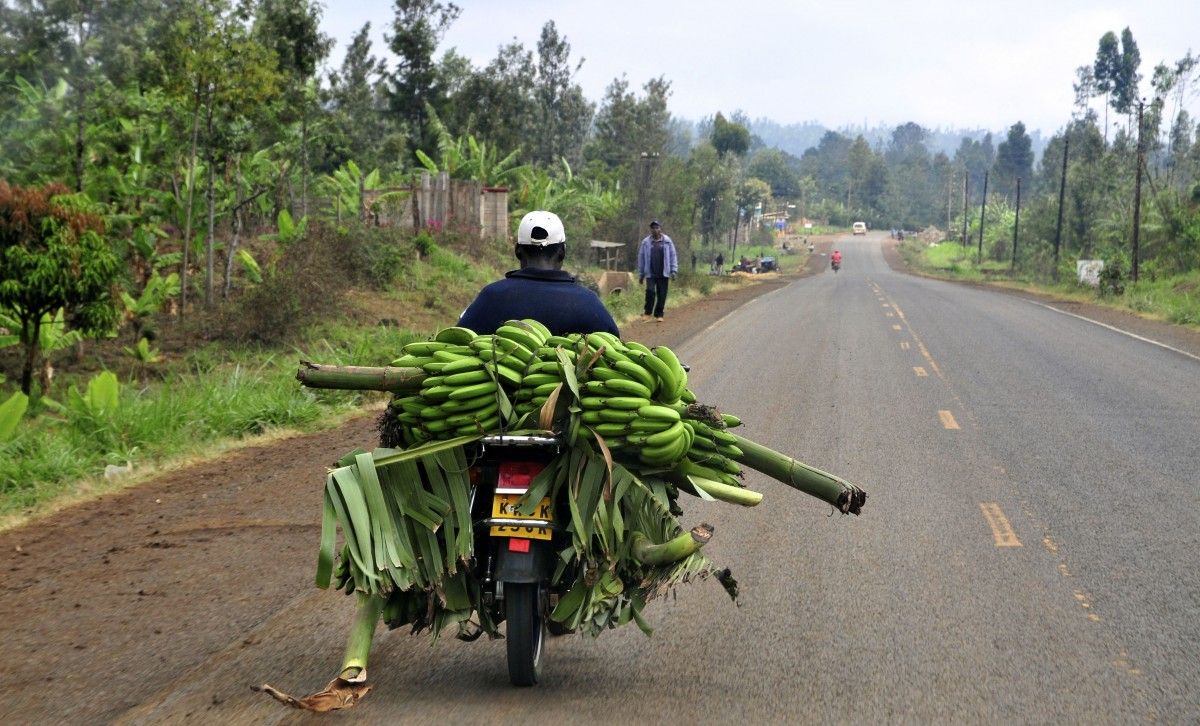At a high level, North American farmers — with their thousands of acres of land — face similar challenges to smallholder farmers across Sub-saharan Africa with less than five acres to work with. They all must contend with unpredictable weather as well as ensure they have enough capital to secure inputs and manage their farms to maximize efficiency and yield. They must also be able to get their products to market. The way these challenges manifest for farmers globally, however, depends largely on the size of the farm as well as the sociopolitical context in which the farms operate.
For this reason, the startups developing agtech solutions for farmers in North America and other developed markets are not necessarily relevant to smallholders across the African continent. There is, therefore, a groundswell of startups and technologies emerging to help smallholders increase efficiencies and hopefully move many from subsistence farming to farming for profit. Many of these smallholder-focused startups loosely fit into three categories: finance tech (FinTech), data analytics, and storage technology.
FinTech for smallholder farmers
Farm loans in the US can start at ~$300,000. Meanwhile, you can sponsor a 7-acre rice farm in Nigeria for $250 via Farmcrowdy, a digital platform that connects sponsors to farmers to increase food production. Other fintech for ag startups are enabling smallholders to get credit to purchase higher quality inputs like seeds, while others are selling their own products via in-house asset financing.
Data analytics
Farmers across the world are turning to remote sensing, data analytics, and machine learning to monitor their acreage and optimize their yields. However, while growers in North America are using IoT solutions to automate pumping in across hundreds of acres of rice fields, companies like Kitovu are collecting, analyzing and aggregating soil and geo-location data from remote smallholder farmers across Nigeria to provide them with the right fertilizers, agro-chemicals, and seedlings for their fields.
Cold storage
Worldwide, about 45% of fruits and vegetables are lost or wasted every year. In emerging markets, this is largely due to spoilage before crops can make it to markets because the infrastructure is not there to support the transportation of fresh produce. In developed countries where the cold chain is established, food waste at the consumer end is the primary culprit. In Sub-Saharan Africa, startups like Wakati are developing innovative methods of storage that require minimal space and resources to preserve crops and increase farmer income.
Learn more about 10 startups that are working towards mitigating the challenges faced by smallholder farmers in Africa:
![]() Founded in 2016, Farmcrowdy is Nigeria’s 1st Digital Agriculture Platform focused on connecting farm sponsors with real farmers to increase food production while promoting youth participation in Agriculture.
Founded in 2016, Farmcrowdy is Nigeria’s 1st Digital Agriculture Platform focused on connecting farm sponsors with real farmers to increase food production while promoting youth participation in Agriculture.
![]() Kitovu is a web/mobile based decentralized fertilizer/seedling warehousing system based in Nigeria that matches the right inputs to different farm locations owned by smallholder farmers in distant pocket locations, using geo-location and soil data collected by the mobile app.
Kitovu is a web/mobile based decentralized fertilizer/seedling warehousing system based in Nigeria that matches the right inputs to different farm locations owned by smallholder farmers in distant pocket locations, using geo-location and soil data collected by the mobile app.
 Wakati developed the world’s first standalone solution for the preservation of fruits and vegetables without using cooling. Smallholder farmers can store their produce on their farms in a protective microclimate inside a tent with a storage of 200 -1000 kg, using one liter of water per week, and powered by a small solar panel.
Wakati developed the world’s first standalone solution for the preservation of fruits and vegetables without using cooling. Smallholder farmers can store their produce on their farms in a protective microclimate inside a tent with a storage of 200 -1000 kg, using one liter of water per week, and powered by a small solar panel.
 Illuminum Greenhouses is an agri-tech greenhouse and drip installation company in Kenya working with smallholder farmers to improve production and increase efficiency through the use of new modern technologies. They construct affordable modern greenhouses and install automated drip irrigation kits for smallholder farmers by using locally available materials and solar-powered sensors.
Illuminum Greenhouses is an agri-tech greenhouse and drip installation company in Kenya working with smallholder farmers to improve production and increase efficiency through the use of new modern technologies. They construct affordable modern greenhouses and install automated drip irrigation kits for smallholder farmers by using locally available materials and solar-powered sensors.
 Apollo Agriculture helps farmers in emerging markets increase their profits. They use agronomic machine learning, remote sensing, and mobile technology to help farmers access credit, high-quality farm inputs, and customized advice. Their first product is a customized package of farm inputs, farming advice, and credit delivered to farmers in Kenya.
Apollo Agriculture helps farmers in emerging markets increase their profits. They use agronomic machine learning, remote sensing, and mobile technology to help farmers access credit, high-quality farm inputs, and customized advice. Their first product is a customized package of farm inputs, farming advice, and credit delivered to farmers in Kenya.
 AMIntegrated Aerial designed a simple spray boom accessory, called the FiKapSy – short for ‘Flying Knapsack System,’ for agriculture drone applications in the precision dispersal of agro-inputs on farm fields reducing excessive use/ waste of agrochemicals that lead to the degradation of the soil and environment across Africa.
AMIntegrated Aerial designed a simple spray boom accessory, called the FiKapSy – short for ‘Flying Knapsack System,’ for agriculture drone applications in the precision dispersal of agro-inputs on farm fields reducing excessive use/ waste of agrochemicals that lead to the degradation of the soil and environment across Africa.
![]() Pula is an insurance intermediary that implements data-driven agricultural insurance. Pula assists hundreds of thousands of small-scale farmers across six countries in Africa. Farmers can safeguard their crops and invest in their farms through financial tools that take advantage of the rising use of mobile technology.
Pula is an insurance intermediary that implements data-driven agricultural insurance. Pula assists hundreds of thousands of small-scale farmers across six countries in Africa. Farmers can safeguard their crops and invest in their farms through financial tools that take advantage of the rising use of mobile technology.
![]() Futurepump develops solar-powered irrigation technologies to help the 500 million one-acre farmers around the world. Based in Kenya, it offers smallholder farmers a cheaper, cleaner and more sustainable alternative to costly and polluting petrol or diesel pumps. Irrigating crops on demand leads to more reliable harvests. It also gives farmers the opportunity to grow and sell crops out of season, bringing huge economic benefits to the farmers, their families, and the wider community.
Futurepump develops solar-powered irrigation technologies to help the 500 million one-acre farmers around the world. Based in Kenya, it offers smallholder farmers a cheaper, cleaner and more sustainable alternative to costly and polluting petrol or diesel pumps. Irrigating crops on demand leads to more reliable harvests. It also gives farmers the opportunity to grow and sell crops out of season, bringing huge economic benefits to the farmers, their families, and the wider community.
 Thermogenn has developed high-performance, off-grid, portable, evaporative coolers to expand smallholder farmers’ marketable dairy products in sub-Saharan Africa, mitigating spoilage to allow farmers to sell their dairy products later in the day instead of only in the morning.
Thermogenn has developed high-performance, off-grid, portable, evaporative coolers to expand smallholder farmers’ marketable dairy products in sub-Saharan Africa, mitigating spoilage to allow farmers to sell their dairy products later in the day instead of only in the morning.

Syecomp specializes in the acquisition, processing, analysis and synthesis of imagery from remotely sensed satellites and multispectral image data from drones to monitor field crops/vegetative status and identify and mitigate potential diseases across fields in Sub-Saharan Africa on farms in Ghana.
Click here to read more about African agtech.





